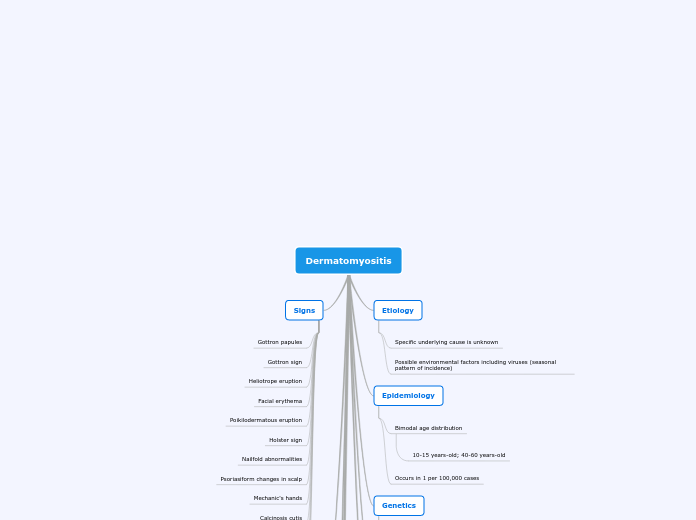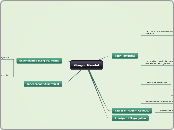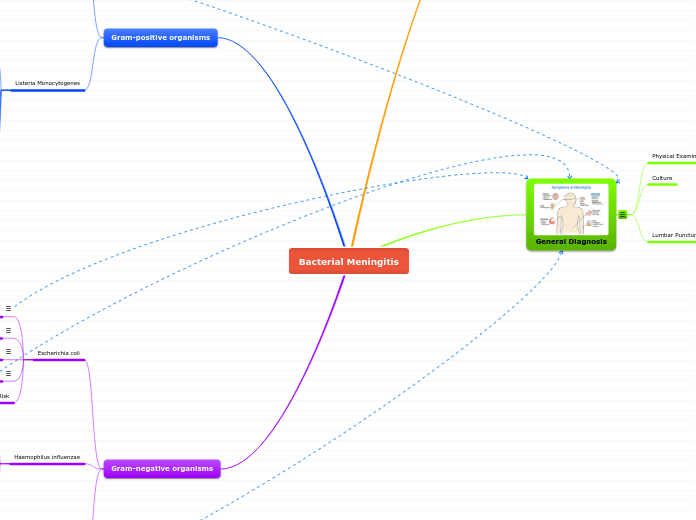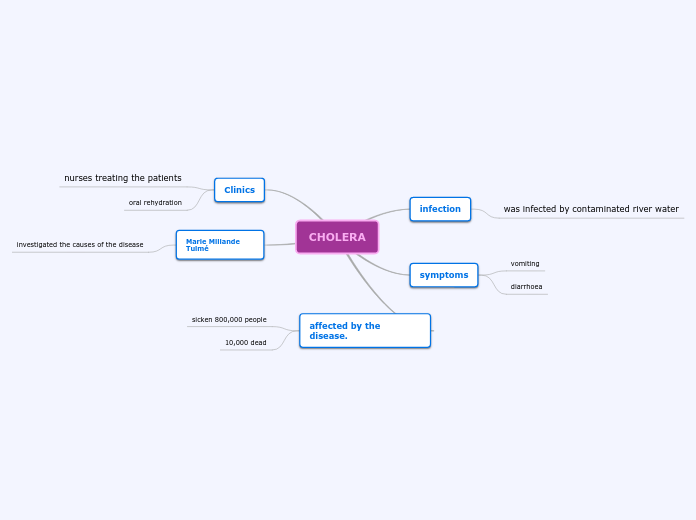по Nina Bharadwaj 2 лет назад
144
Rheumatology Dermatomyositis Mindomo Assignment
Dermatomyositis is a rare inflammatory muscle disease characterized by muscle weakness and distinctive skin manifestations. It affects two main age groups: children aged 10-15 and adults aged 40-60, with a prevalence of approximately 1 per 100,000 individuals.









